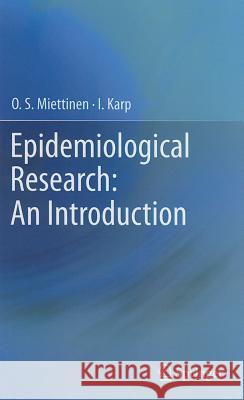Epidemiological Research: An Introduction » książka
Epidemiological Research: An Introduction
ISBN-13: 9789400745360 / Angielski / Twarda / 2012 / 186 str.
Epidemiological Research: An Introduction
ISBN-13: 9789400745360 / Angielski / Twarda / 2012 / 186 str.
(netto: 191,66 VAT: 5%)
Najniższa cena z 30 dni: 192,74
ok. 16-18 dni roboczych.
Darmowa dostawa!
Having last year published Up from Clinical Epidemiology & EBM and also Epidemiological Research: Terms and Concepts, Miettinen now this time with collaboration from his junior colleague I. Karp brings out this further introduction into epidemiological research; and he is now working on an introduction into clinical research, for publication next year. It evidently is Miettinen s felt time to crystallize the basic understandings he has come to as the culmination of a half-century of concentrated effort to advance the theory of epidemiological and meta-epidemiological clinical research.In accord with its title, this book focuses on research to develop the knowledge-base for preventive medicine, which mainly is knowledge about the causal origin etilogy, etiogenesis of illness. It first illustrates how wanting this knowledge still is, despite much research; and it then aims to guide the reader to more productive etiogenetic research.This book places much emphasis on the need to assure relevance by principles-guided objects design for the studies, which now remains conspicuously absent from epidemiologists concerns. And as for methods design, this book exposes the fallacies in the still-common cohort and case-control studies, defines the essentials of all etiogenetic studies, and then addresses the true options for design in this framework of shared essentials.A good deal of attention is also given to the still commonly-held, very major, twin fallacies that screening for an illness is a preventive intervention, to be studied by randomized trials, and that research on it can imply rational guidelines or recommendations regarding decisions about the screening.While Miettinen already is regarded as the father of modern epidemiology, he now appears to have become the father also of post-modern epidemiology, where epidemiology still means epidemiological research."











